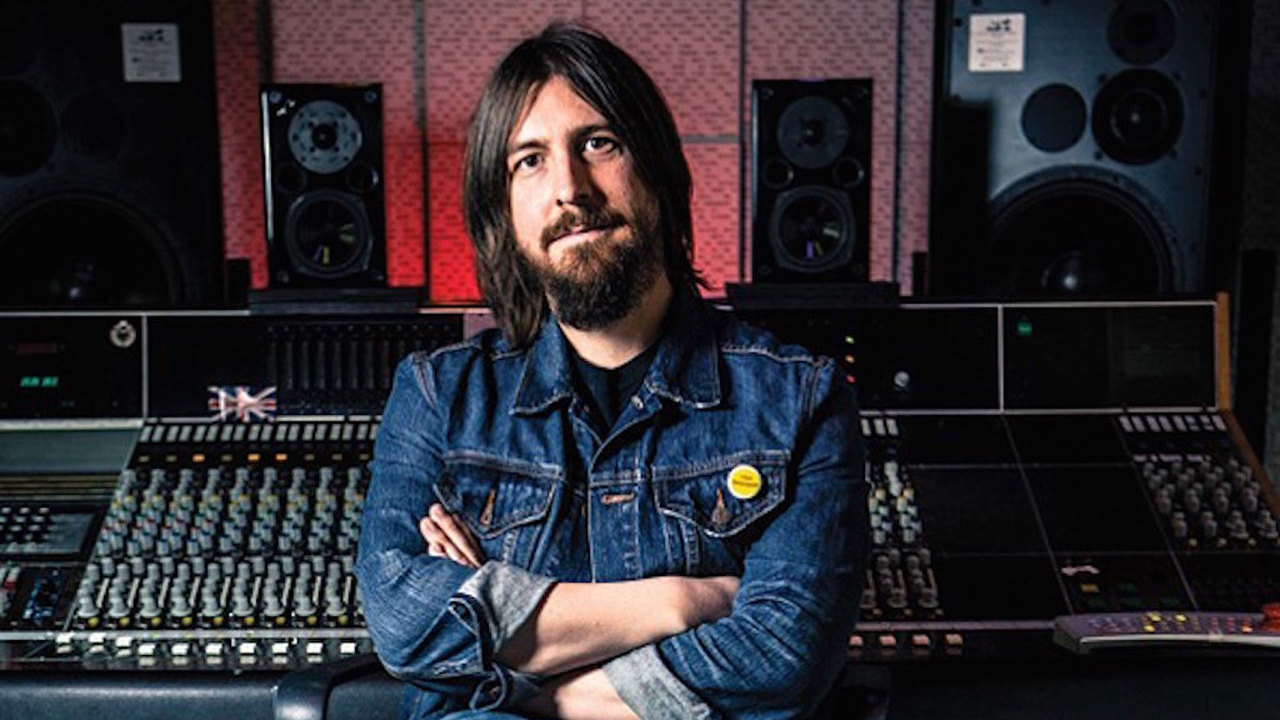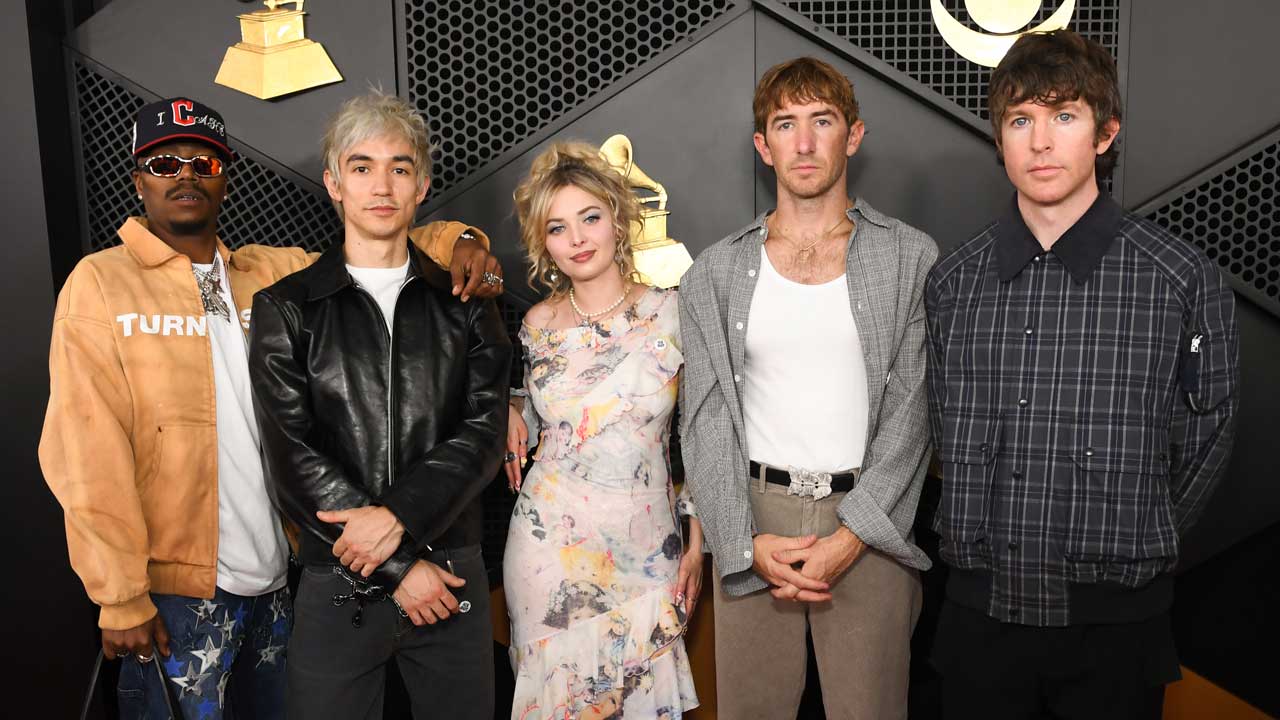The 10 Records That Changed Dave Cobb's Life
He’s the hottest producer in country music today... and he does rock'n'roll too. Dave Cobb chooses ten discs that did permanent damage

When Dave Cobb is asked to name his favourite band of all time, his mind races quickly to England in the 1960s. “To me, this is a real no-brainer,” he says. “I’ve always thought there was the Beatles and then everybody else.
“I don’t even believe people when they say they hate the Beatles,” he continues. They’re just being assholes. You can’t compare anybody to the Beatles. Who knows what lightning strike hit the ground that made those records possible? We’ll never figure it out. I’d love for something like the Beatles to happen in my lifetime again, but I don’t think it will.”
Cobb has been doing his part to shake the Nashville scene out of its “bro-country” stasis. With an ear for musical purity and a gut for “swagger” (a word he uses often), he’s produced a string of critical and popular hits for Jason Isbell, James Johnson and Sturgill Simpson, and his recent production of Chris Stapleton’s debut album Traveller hit all kinds of firsts: It’s the first debut country album to reach number one on Billboard’s Top 200 in four years, and the first record to re-enter the chart in the top position. Add to that Grammy nominations for Album of the Year and Producer of the Year, and it’s clear that Cobb is on to something.
“It still hasn’t all sunk in,” Cobb says with a laugh. “People are saying I’m bucking the rules or being an outlier and stuff like that, but I don’t think that’s true. I’m just keeping my head down, working with great artists and trying to help them put their music across as honestly as possible.”
Cobb expresses admiration for a host of ‘60s and ‘70s record makers – he rattles names such as George Martin, Jimmy Miller, Roy Halee and Gus Dudgeon – and says that if he shares any similarities with his heroes, it’s the overarching belief that the artist comes first.
“People know Simon & Garfunkel and Elton John because their producers put the artists first,” he says. “They know the Stones and the Beatles. I try to do the same thing in my work. It’s not my record; it’s Chris Stapleton’s record. Or it’s Jason Isbell’s record, and so on. I don’t have a signature sound, and I don’t want one. I don’t want people to say, ‘Oh, that’s gotta be Dave Cobb.’ I just want them to get lost in the artist’s music the same way I did with the records I love.”
Below, Cobb runs down the 10 records that changed his life.
Sign up below to get the latest from Classic Rock, plus exclusive special offers, direct to your inbox!
The Beatles – Revolver (1966)
“Revolver is probably my favourite record of all time. People talk about transitional records, and this is one of the most important albums of its kind because it represents the Beatles going from who they were to what they would become.
“It covers so much ground that it’s sort of mind-boggling. It’s got heavy rock and beautiful pop, a bit of soul and string quartets, and there’s psychedelia with Tomorrow Never Knows. And it all flows, too – it’s not a jumble of styles like some records. It’s hard to pick a best song on an album this perfect, but I’m Only Sleeping has always been one of my favourites. Pure genius.
“Being a producer, I look at Revolver as the record that kind of invented the game. Tape slaps, phasing and flanging, backwards guitars and drums, loops – nobody was doing this stuff before the Beatles and George Martin did it. This is the album that said, ‘Here’s what’s possible. Now take this and run with it.’”
Led Zeppelin – Led Zeppelin (1968)
“To be honest, I could fill pretty much any top 10 list with Beatles albums. Of course, there is Led Zeppelin, who could take up a lot of places themselves. I especially love their first album because it has such mystery to it. How Many More Times whisks you away on a mystical trip. It’s edgy rock‘n’roll, but it’s beautiful and haunting at the same time.
“Jimmy Page always talked about making records that had light and shade to them, and this album exemplifies that intention. It drew me in the first time I heard it, and I’m still chasing its sound. It’s raw and pure and bold and just so powerful. It’s my favourite-sounding rock‘n’roll record of all time.”
Eagles – New Kid in Town (1976)
“I grew up Pentecostal – my parents were super-religious – so I didn’t hear a lot of rock‘n’roll at first. But my aunt was into rock, and one day she left behind a 45 of the Eagles’ New Kid in Town. It made its way into my room when I was four or five, and I became obsessed by it, particularly the vocal harmonies.
“I wouldn’t say I’m a huge Eagles fan, but I love this song. It was the first song I really got attached to. I didn’t know it at the time because I had no frame of reference, but the harmonies are very Beatle-esque. The Eagles could sing.”
Various Artists – White Mansions (1978)
“I discovered this album late in life, when I was about 27 or so. Shooter Jennings played me White Mansions, which was produced by Glyn Johns. It’s a concept record about the American Civil War, and it’s got Waylon Jennings, Jessi Colter, Steve Cash, JJ Cale and Eric Clapton on it.
“It’s the album that made me love country music, and I kind of look at it as being the epitome of what country should be. Glyn Johns produced Zeppelin I and so many great rock records, but here he’s working with all of these amazing country artists. I think that’s pretty hip.
“The sound of the band, the quality of the musicianship, the tension on the album – it’s all top-notch and very special. I listen to this record regularly. As a sonic and story piece, it’s been very inspirational to me.”
The Rolling Stones – Sticky Fingers (1971)
“This is quintessential Stones, when they had that pocket and a swagger all their own. Can’t You Hear Me Knocking is probably my favourite Stones song ever. Mick Taylor’s got a great guitar solo on it, and there’s that long psychedelic ending – a total knockout.
“Jimmy Miller was producing the band now, and I think he brought a lot to the table. He started with them on Jumpin’ Jack Flash, and that’s one of the first songs of theirs to have that swagger I’m talking about. I think they sort of turned a corner with that track, and they continued on that path.
“I’m attracted to a vibe – anything that makes you feel certain way, and maybe not the way you felt before you put a record on. Sticky Fingers has a dark, mystical cloud over it. You can’t put it on and not be sucked in.”
Waylon Jennings – Ol’ Waylon (1977)
“He’s not like the Rolling Stones, but Waylon Jennings put a danger on his records, too. The quality of his voice and the stories he tells on this album are remarkable. Production-wise, it defined what a good country record should sound like.
“Waylon did things his own way. He had a rock‘n’roll band, and they played all kinds of crazy shit you’d never hear on country records. He created his own musical landscape. It’s raw and rough around the edges, and it’s super-hip. Some people don’t know this, but Waylon was one of the rock‘n’roll pioneers – he played with Buddy Holly and a lot of those early guys. He was there when it was all being invented.”
AC/DC – Powerage (1978)
“I was a kid when I heard this for the first time, and it was a defining moment for me. I was obsessed with the song Riff Raff – I just couldn’t get enough of it. There’s a bit of a country vibe to the song, and a little boogie-woogie in there, too. For an Australian band, they really studied their American music.
“And everything they do is so powerful here. You feel like you’re being shot by a canon every time you hear Malcolm and Angus Young play. When I was 13, that was it – I wanted to play guitar like those guys. So this was a super-inspirational guitar record for me.”
Simon & Garfunkel – Bridge Over Troubled Water (1970)
“My God, what an album! People don’t think of Bridge Over Troubled Water as being an experimental record, but I put it right up there with Sgt. Pepper. They were trying things and breaking new ground like crazy. There are loops on this record, and they’re singing in chapels and miking drums in elevator shafts. It’s a beautiful musical landscape.
“The whole thing is so deceptively simple. You think you’re hearing two guys singing with an acoustic guitar, but it’s a lot more involved than that. There’s opera, light and shade and all kinds of wild effects. And it’s got the Wrecking Crew guys, too. What can you say about them, right? They were the best in the business. They hit each track out of the park.”
Bad Company – Rock ‘n’ Roll Fantasy (1979)
“This is another one of the 45s that I heard as a kid. I got it from my cousin’s house. There’s a great haunting vibe to this record. It’s got all sorts of crazy effects on it, and it sort of takes you into outer space.
“It’s a gnarly rock song, and Paul Rodgers’ voice is incredible on it. I listened to this song, and it made me check out the whole album Desolation Angels. Killer stuff on that, as well. Lots of cool sounds and brilliant guitar work. It takes you places.”
Pink Floyd – Wish You Were Here (1978)
“I adore David Gilmour. It’s funny, because when I was a kid, I didn’t really care about Pink Floyd. But one night I listened to this album with the lights off, and all the tension at the beginning just drew me in. And then David Gilmour hits this one note and holds it… Man, I was spellbound. Drugs or no drugs, you’re going somewhere.
“Beyond everything else, it’s all about Gilmour for me. The way he plays, his note choices, the effects he uses and how smooth he is – he’s angelic. As a musician, this record really made me realize what he was all about.
“Shine On You Crazy Diamond is the gem. The beginning is incredible. It takes a while for them to actually start playing the song, and with most bands that would be incredible boring. You’d be like, ‘OK, is anything gonna happen?’ But it’s not boring with Pink Floyd. It’s powerful. They give you this long runway before everything begins, and when they kick in the lift-off is even more exciting.”
Joe is a freelance journalist who has, over the past few decades, interviewed hundreds of guitarists for Guitar World, Guitar Player, MusicRadar and Classic Rock. He is also a former editor of Guitar World, contributing writer for Guitar Aficionado and VP of A&R for Island Records. He’s an enthusiastic guitarist, but he’s nowhere near the likes of the people he interviews. Surprisingly, his skills are more suited to the drums. If you need a drummer for your Beatles tribute band, look him up.

